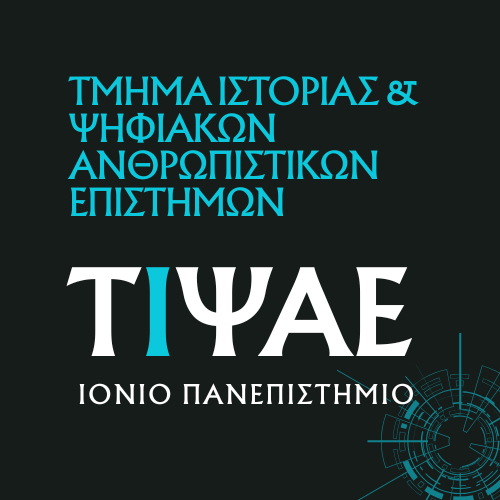Teaching Staff: Baroutsos Fotios
Course Code: ΙΝΧ603
Course Type: Seminar
Course Level: Undergraduate
Course Language: Greek
Semester: 3rd
ECTS: 5
Curricula: Curriculum in History and Digital Humanities from 2025
What defined the everyday life of people in the Venetian possessions in the 16th and 17th centuries: this is the cognitive framework of the course. The information will be drawn from the deeds of the notaries, and will be elaborated with a view to finding the conditions that determined everyday transactions, but also short- and long-term social habits. The elaboration will be reflected in an organized record of occupations and transactions in the individual areas of social life.
The structure of the course is composed of two parts: the didactic and the research part.
The first part consists of lectures to familiarize students with the historical dimension of the institution of notaries and its function. The starting point of the research part is the formulation of the research methodology, followed by the recording of information and its organisation in a database.
Upon completion of the seminar, the students:
- They will have knowledge of the profession of the notary, his/her place in the legal system,
- They will be familiar with the basic concepts of the social and political reality of the Venetian possessions in the eastern Mediterranean,
- They will be able to understand the processes of social reproduction through legal documents,
- They will have acquired skills in studying archival documents, recording the information contained in them,
- They will have the ability to analyse texts and draw conclusions as to the usefulness of the information and the method of processing it; and finally
- They will master tools for the critical study of historical information.
Week 1 Familiarisation with basic concepts of Venetian law.
Week 2 The profession of the notary in the Venetian possessions.
Week 3 Familiarisation with the notarial records.
Week 4 The methodology of research.
Week 5 1st workshop: notarial vocabulary and acts.
Week 6 2nd workshop: notarial vocabulary and acts.
Week 7 3rd workshop: the mapping of social reality.
Week 8 4th workshop: the mapping of social reality.
Week 9 Student presentations and commentary.
Week 10 Student presentations and commentary.
Week 11 The use of digital tools for the recording of archival data.
Week 12 The use of digital tools for the recording of archival data.
Week 13 Summary-Conclusions.
- W. Bakker, A. van Gemert (εκδ.), Μανόλης Βαρούχας.Νοταριακέςπράξεις: Μοναστηράκι Αμαρίου, 1597-1613, Ρέθυμνο 1987.
Γ. Κ. Μαυρομάτης (εκδ.), Ιωάννης Ολόκαλος, Νοτάριος Ιεράπετρας : κατάστιχο (1496-1543), Βενετία 1994.
Γ. Ε. Ροδολάκης – Γ. Ι. Γκρινιάτσος, «Το νοταριακό αρχείο Κέρκυρας», Επετηρίδα του Κέντρου Ερεύνης της Ιστορίας του Ελληνικού Δικαίου 32 (1996).
Γ. Ε. Ροδολάκης, Λ. Παπαρρήγα-Αρτεμιάδη, «Οι πράξεις του νοτάριου Αγίου Ματθαίου Κέρκυρας Πέτρου Βαραγκά (1541-1545)», Επετηρίδα του Κέντρου Ερεύνης της Ιστορίας του Ελληνικού Δικαίου 32 (1996).
Μ. Γ. Δρακάκης (εκδ.), Μιχαήλ Μαράς, Νοτάριος Χάνδακα, Ηράκλειο: Βικελαία Βιβλιοθήκη, 2004-6.Νοταριακές πράξεις του κώδικα της οικογένειας Τυπάλδου-Λασκαράτου (16ος-17ος αιώνας), Κέρκυρα 2009.
Μ. Μανωλοπούλου, Προικοσύμφωνα νήσου Κερκύρας 16ου αιώνος, Κέρκυρα 2008
Σ. Πανταζή, Ἐμμανουὴλ Τοξότης, Νοτάριος Κερκύρας. Πρωτόκολλο, Πράξεις τῶν ἐτών 1500- 1503, Κέρκυρα 2007
Κ. Πιλιλή, Σπυρίδων Βερβιτσιώτης, νοτάριος Κερκύρας. Πρωτόκολλο (1741-1744), Κέρκυρα 2009
Β. Θεοδωροπούλου, Ο νοτάριος και ο κόσμος του στη Βενετοκρατούμενη Κρήτη : το παράδειγμα των νοταρίων Μιχαήλ Μαρά και Πέτρου Πατσιδιώτη, Αθήνα 2015
Νοταριακές πράξεις του κώδικα της οικογένειας Τυπάλδου – Λασκαράτου (16ος – 17ος αἰώνας), Κέρκυρα 2009
Αντώνιος Σπυρής, Νοτάριος και πρωτοπαπάς Κερκύρων – Πρωτόκολλο (1560-1567), Κέρκυρα 2007
Φ. Καρλάφτη-Μουρατίδη, Δικαιοπραξίες εργασιακών σχέσεων στην Κέρκυρα (17ος αι.), Παξοί 2014
Φ. Καρλάφτη-Μουρατίδη, Το επάγγελμα του συμβολαιογράφου στην Κέρκυρα επί βενετοκρατίας, Αθήνα 2012
Φ. Καρλάφτη-Μουρατίδη, Η μαθητεία στα επαγγέλματα στην Κέρκυρα το 17ο αιώνα, Αθήνα 2004-2006.
- Creation of a database of archival findings
- Asynchronous distance learning platform
- Digital bibliography tracking
Research and documentation, presentations.
Back



